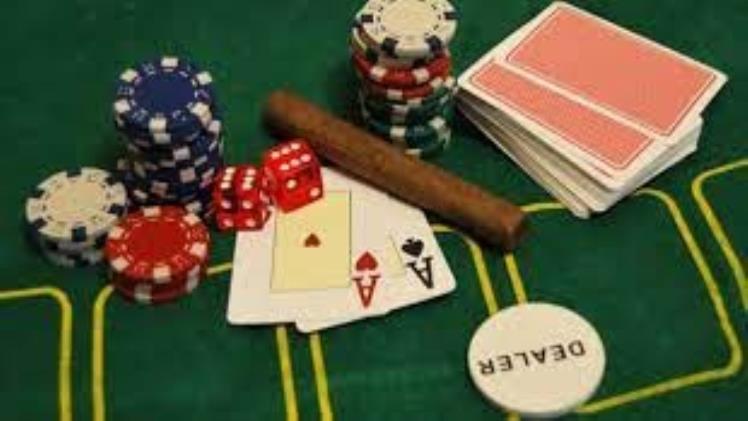Poker Tips: Mastering the Art of Bluffing and Strategy

Poker, often regarded as a game of skill, strategy, and psychology, has captivated players for centuries. Whether you’re a casual player looking to enjoy a friendly game with friends or aspire to become a poker pro, mastering the art of bluffing and strategy is essential. In this article, we’ll dive into casino 카지노사이트, exploring popular variants, rules, strategies, and tips for success. So, shuffle up and deal!
Exploring Popular Poker Variants
Before delving into poker strategy, let’s familiarize ourselves with some of the most popular poker variants:
- Texas Hold’em: This variant is the darling of the poker world. Each player is dealt two private cards, and five community cards are placed face-up on the table. The objective is to make the best possible hand using a combination of your private cards and the community cards.
- Omaha: Similar to Texas Hold’em, Omaha gives players four private cards instead of two. However, they must use exactly two of their private cards and three community cards to make a winning hand.
- Seven-Card Stud: In this variant, players receive seven cards, with three facedown and four face-up. The goal is to create the best five-card hand from the seven cards dealt to you.
Understanding the Rules and Basic Gameplay of Texas Hold’em Poker.
To become a poker master, you must first understand Texas Hold’s fundamental rules and gameplay, which form the foundation for most poker variants.
Step into a new era of excitement with Pagbet, a trailblazer in online betting. Seamlessly blending innovation and user-friendly design, Pagbet elevates the thrill of wagering, offering a dynamic platform that transforms how enthusiasts engage with games of chance.
In a standard Texas Hold’em game:
Each player is dealt two private cards (hole cards).
- Five community cards are placed face-up on the table in stages: the flop (three cards), the turn (one card), and the river (one card).
- Players must combine their hole cards and the community cards to form the best five-card hand.
- Betting rounds occur after the hole cards, the flop, the turn, and the river, allowing players to fold, call, raise, or check.
- Strategies for Selecting Starting Hands and Position Play
- Successful poker players understand the importance of starting hand selection and position play. Here are some key strategies:
- Starting Hands: Not all hands are created equal. Learn to differentiate between solid and weak starting hands. High-ranking hands like pocket aces (A-A) or kings (K-K) have a higher chance of success. Low-ranked hands should be approached with caution.
- Position Play: Your seating position at the table can significantly affect your strategy. Being in a late position, such as the dealer or the button, gives you a strategic advantage, as you can see how other players act before making your move. Use this information to your advantage when folding, calling, or raising.
The Art of Bluffing in Poker and Reading Your Opponents
Bluffing is one of the most exhilarating aspects of Poker, but it’s not a strategy to be taken lightly. Here’s how to master the art of bluffing:
- Timing: Effective bluffing requires perfect timing. It’s essential to pick the right moment, often when the community cards suggest a strong hand, to make your opponents fold.
- Table Image: Pay attention to your table image. If you’ve been playing conservatively all night, your opponents will likely believe your bluffs. Conversely, if you’ve been raising frequently, your bluffs might not be as convincing.
- Reading Opponents: Observe your opponents’ behavior and body language. Look for weaknesses, such as nervous habits or unusual betting patterns. Being a keen observer can help you make informed decisions and adjust your strategy accordingly.
Tips for Honing Your Poker Skills and Playing in Tournaments
Now that you’re well-versed in the basics of poker strategy, it’s time to take your game to the next level:
- Practice, Practice, Practice: The more you play, the more experience you gain. Start with low-stakes games and gradually work your way up. Online poker sites offer a convenient platform for practice.
- Bankroll Management: It’s crucial to manage your poker bankroll wisely. Set limits on your losses, and don’t let emotions lead to reckless bets.
- Play Tournaments: Tournaments are a great way to test your skills and compete with other players. Develop a tournament-specific strategy that combines patience and aggression.
Stories of Players Who Have Applied These Tips to Succeed in Poker
Success stories in the world of Poker are abundant. Take, for example, the story of Chris Moneymaker, an amateur player who won the 2003 World Series of Poker Main Event, turning an $86 satellite entry into $2.5 million. Moneymaker’s victory ignited a poker boom and inspired countless others to pursue their poker dreams.
Responsible Gambling Practices and Knowing When to Fold in Poker
While the allure of Poker can be irresistible, it’s essential to practice responsible gambling:
- Set Limits: Establish a budget for your poker activities and stick to it. Avoid chasing losses; never wager more than you can afford to lose.
- Know When to Fold: Recognizing when your hand is unlikely to win is a key part of poker strategy. Don’t be afraid to fold if the odds are against you.
- Take Breaks: Poker can be mentally demanding. Take regular breaks to stay focused and avoid making hasty decisions.
Conclusion
Poker is a dynamic and intellectually challenging game that rewards strategy, skill, and psychology. By mastering the art of bluffing, understanding poker variants, and applying the strategies outlined here, you can improve your game and potentially follow in the footsteps of legendary players like Chris Moneymaker. Remember, Poker is not just about luck; it’s about making calculated decisions, reading your opponents, and embracing responsible gambling practices. So, the next time you’re at the poker table, you’ll be better equipped to make the right move and leave the game a winner. Good luck!





